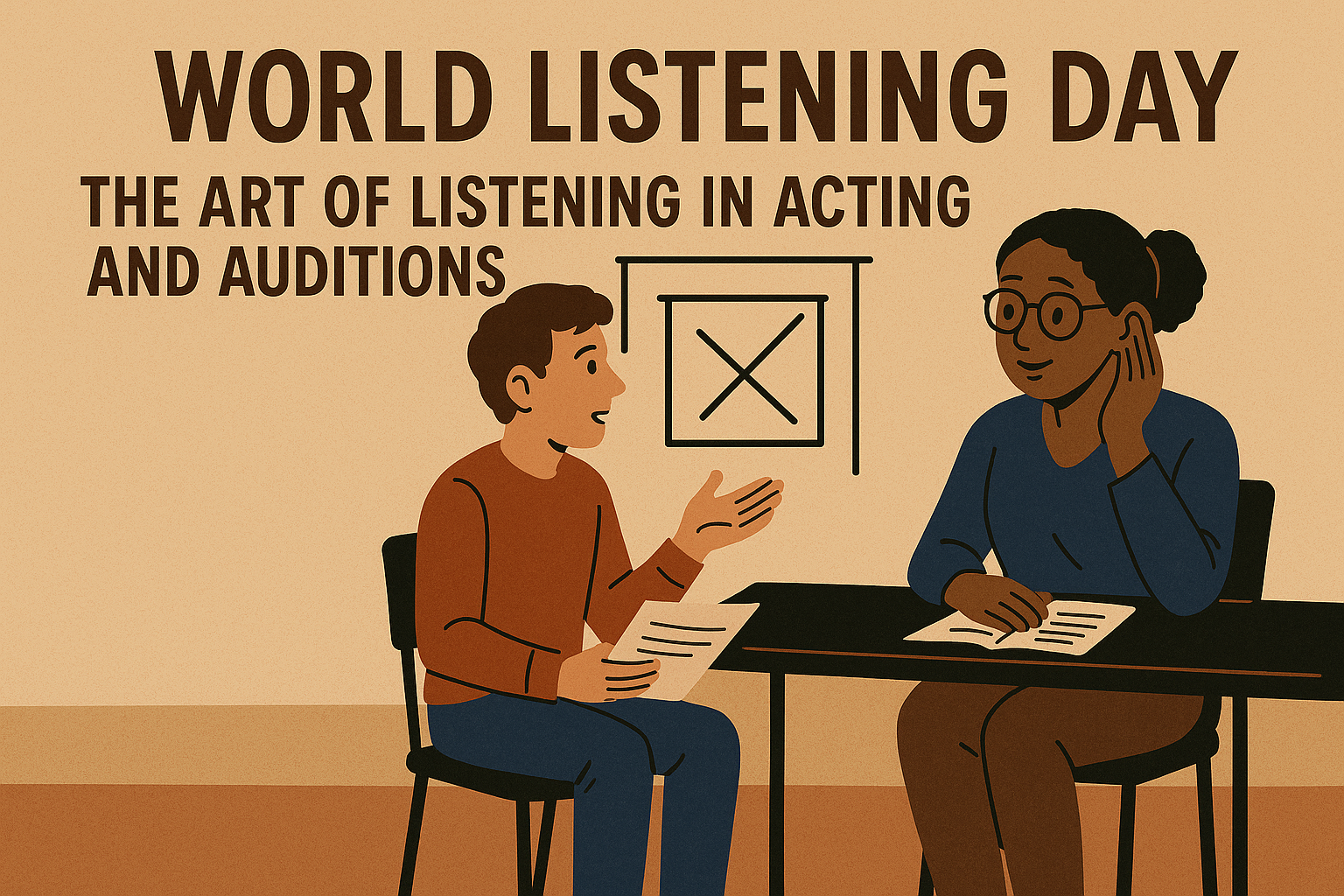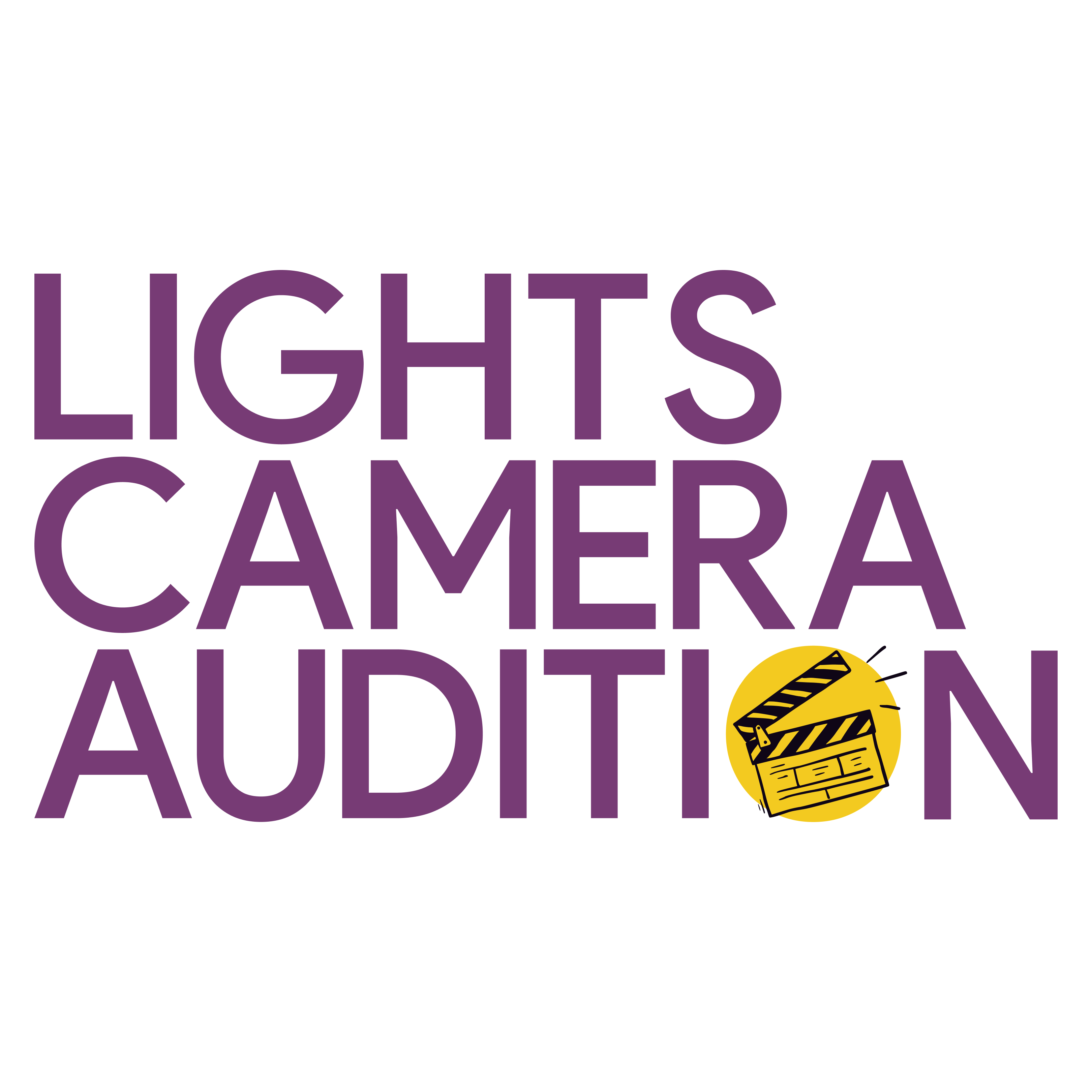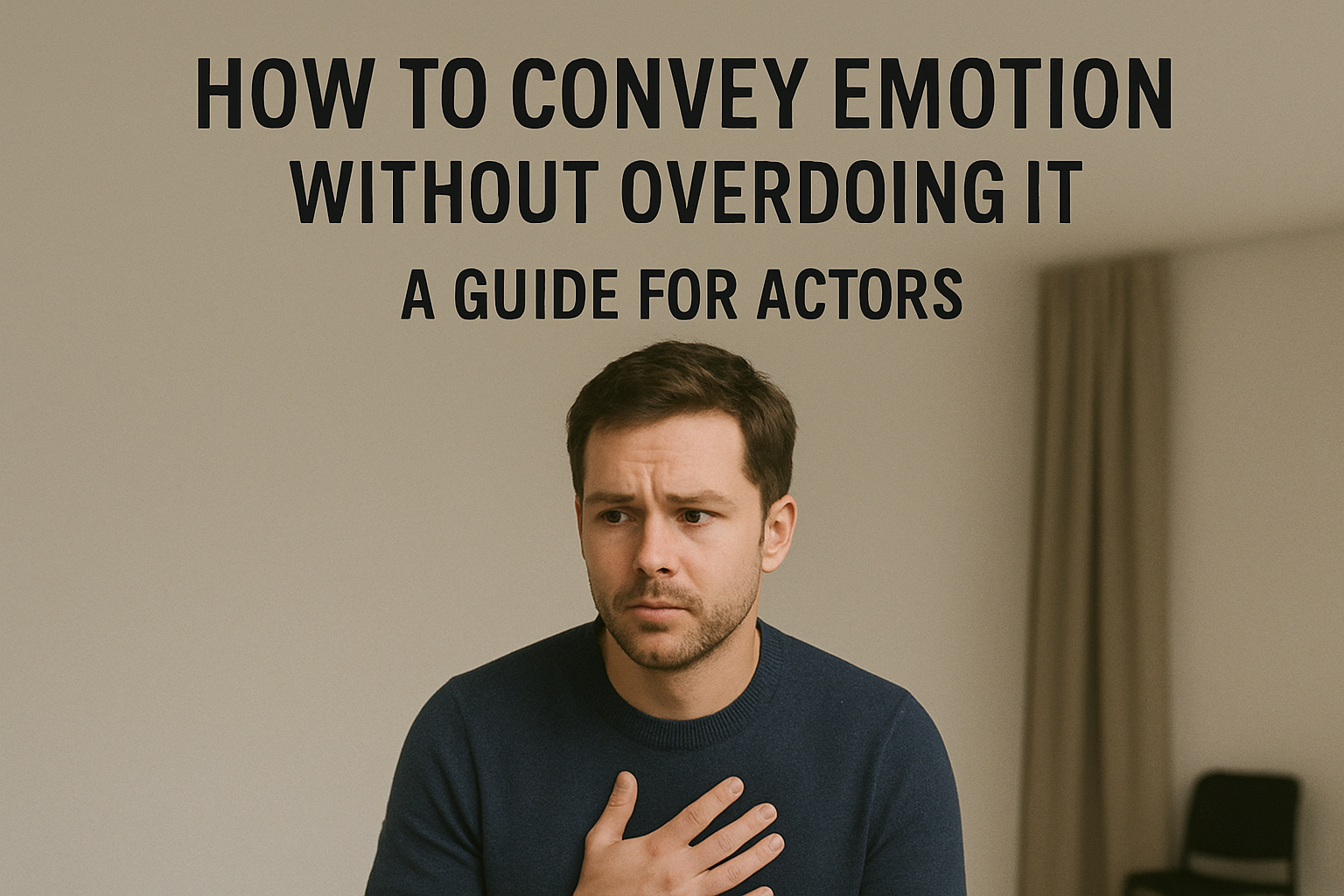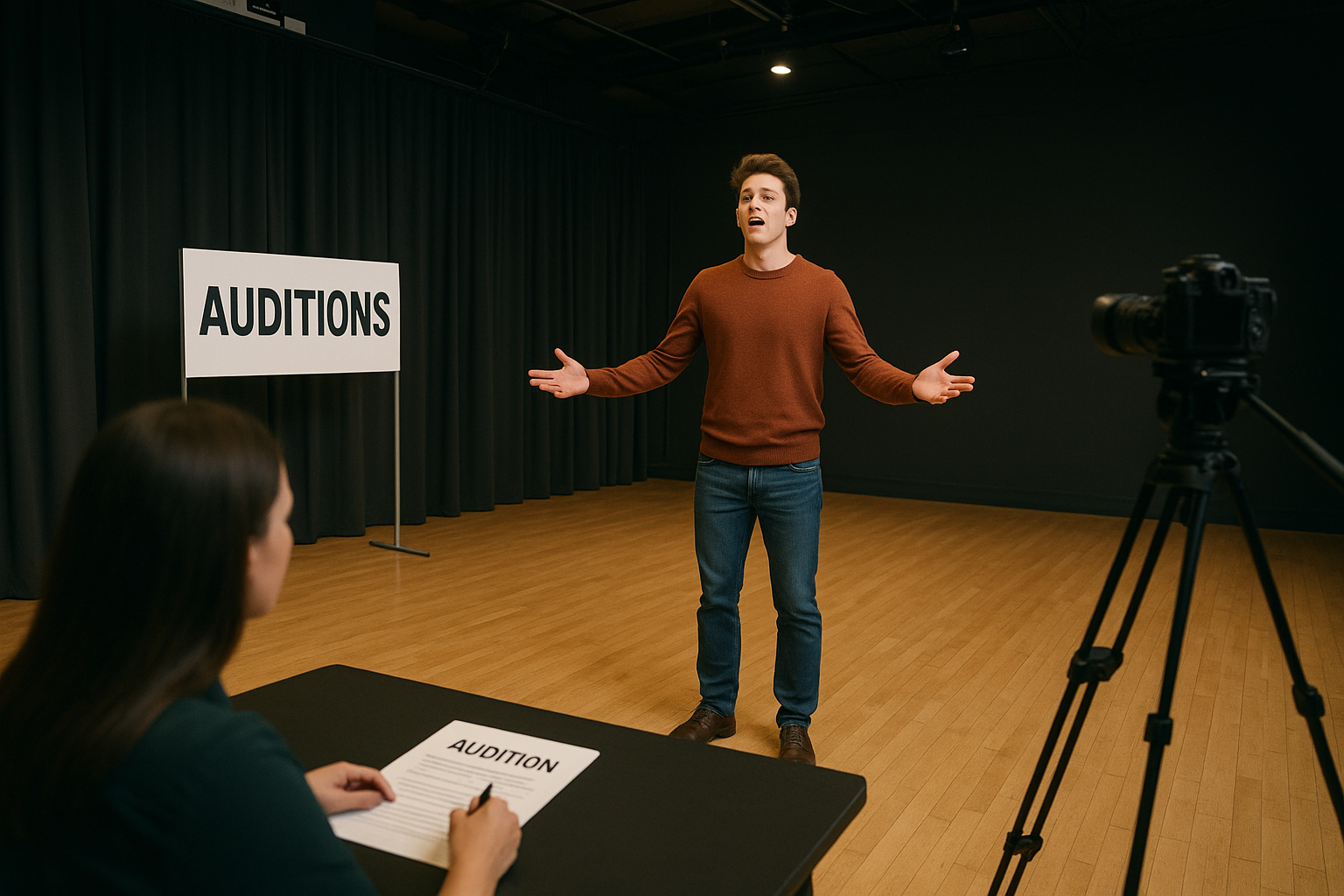
Every year on July 18, the world comes together to celebrate World Listening Day, a global initiative that encourages people to pay attention to the sounds around them—natural, urban, emotional, and human. It was launched by the World Listening Project in honor of composer and environmentalist R. Murray Schafer, whose pioneering work in acoustic ecology emphasized how deeply sound shapes our lives. While this day often highlights environmental awareness and soundscapes, it’s also a timely reminder of the vital, often overlooked skill of active listening—especially in the world of acting and auditions.
In acting, listening is everything.
It’s easy to think that acting is just about delivering lines with emotion, mastering body language, and memorizing scripts. But the core of authentic performance is not in speaking—it's in listening. Great actors don’t just wait for their turn to talk. They absorb, react, and respond to their scene partners. This creates real, believable interaction. Audiences can spot the difference between someone who is just reciting lines and someone who is fully present in the moment, emotionally responding to what’s being said and done.
That presence comes from deep listening.
In auditions, this skill becomes even more crucial. Often, actors are paired with a reader or casting director they've never met before. The scene becomes a test not just of talent but of the actor's ability to listen and adapt in real time. Directors are looking for actors who are not just delivering rehearsed monologues but who can connect. That connection starts with listening—not only to the words being spoken but also to tone, energy, subtext, and body cues.
Listening also plays a crucial role in taking direction. Many actors fall into the trap of preparing one rigid interpretation of a scene. But auditions can shift. Directors might ask for a completely different tone or approach. The ability to truly listen to those notes—and to incorporate them quickly and honestly—can be what separates a forgettable audition from a cast-worthy one.
In a broader sense, listening builds empathy, a key tool in any actor's toolkit. To portray a character believably, an actor must first understand them. That requires listening to the character’s voice, situation, desires, and struggles—not just in dialogue, but in silence, in action, and in intention.
So, on this World Listening Day, take a moment not just to tune into the natural world, but also into the people around you. Practice listening without the urge to respond immediately. Let their words land. Let silence speak. If you're an actor, bring that stillness and attentiveness into your craft. If you're preparing for auditions, remember: it's not just about being heard—it's about hearing.
In the end, great performances don’t shout the loudest. They listen the deepest.
Among the tough battles actors face is how to find the most appropriate balance between emotion display and overacting, either on stage, on camera, or when going for auditions. Many performers fear that without adequate emotions, the moment will fall flat. On the other hand, if emotions are overt, the performance may become exaggerated or not true to life.
The entertainment sector is witnessing a huge shift, and the epicenter of this revolution is digital media. Those days are long gone when acting careers were reserved for silver-screen movies or television. Now, web series and digital media such as Netflix, Amazon Prime, Hotstar, YouTube, and MX Player have opened up the floodgates of opportunities for thespians. But what does it actually mean to be an actor in the digital age? Is it all that different from acting in the past? And why do web series prove so engaging as a platform for new and established performers?
Acting may be an art, but in the world of professional performance, it begins long before the cameras roll or the stage lights shine. It begins with the audition — the often nerve-wracking, unpredictable process that determines whether an actor even gets the chance to perform. For aspiring actors, understanding the relationship between auditioning and acting is not just important — it's essential. One feeds into the other, and together, they shape an actor’s growth, resilience, and ultimate success.
Getting into acting is hard — but succeeding as a freelance actor might be harder. Without the support of a large agency, production company, or manager, you're basically a sole proprietorship. You're the product, the marketer, the promoter, and the brand. So how do you become visible? How do you promote yourself as a freelance actor among so many talented individuals? Whether you're new to the game or wanting to level up, this guide will take you through essential strategies to create visibility, bring in opportunities, and establish yourself as a player in the cutthroat industry of freelance acting.
Lights Camera Audition!
Don't miss out on the latest updates, audition calls, and exclusive tips to elevate your talent. Subscribe to our newsletter and stay inspired on your journey to success!







